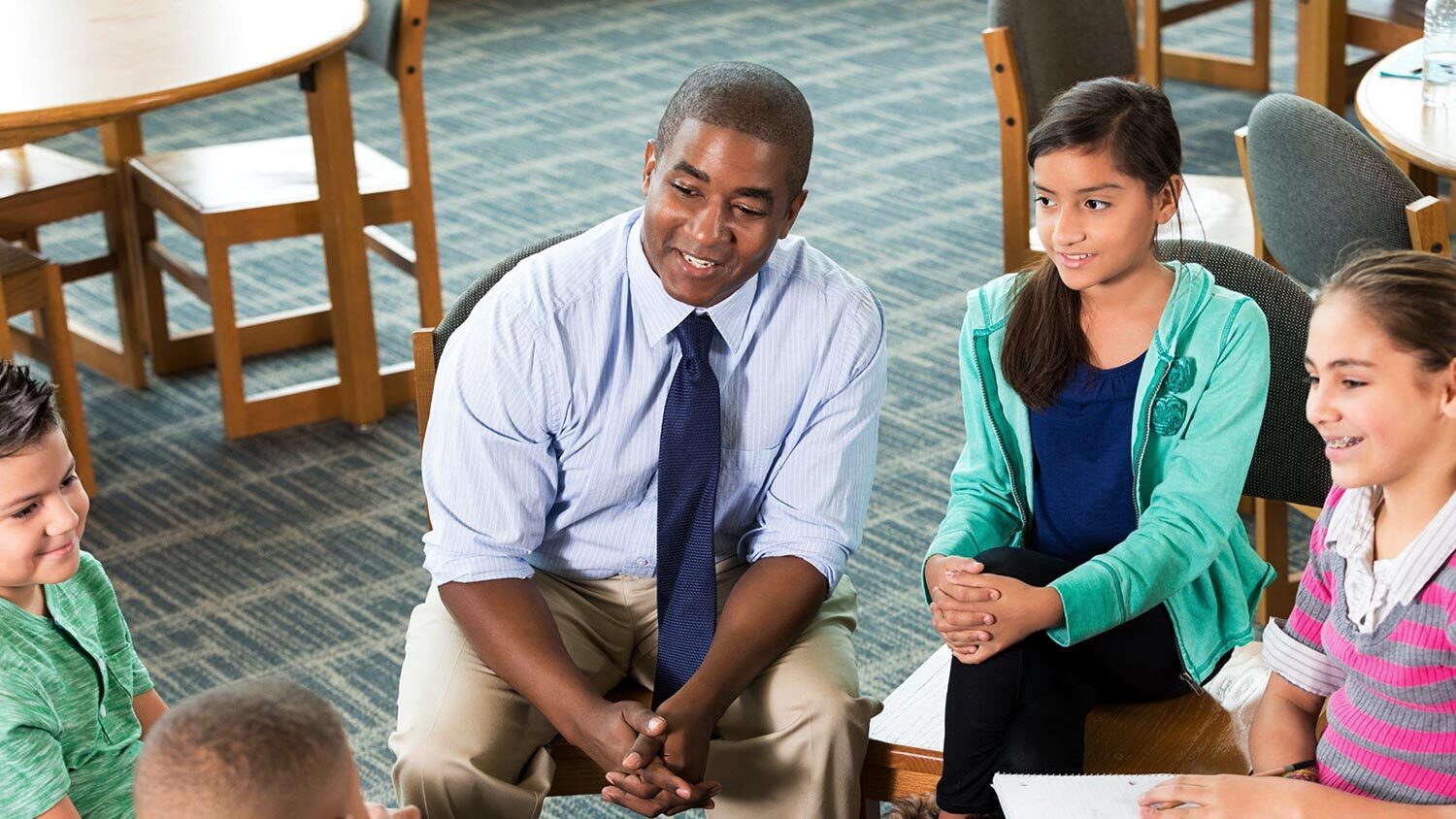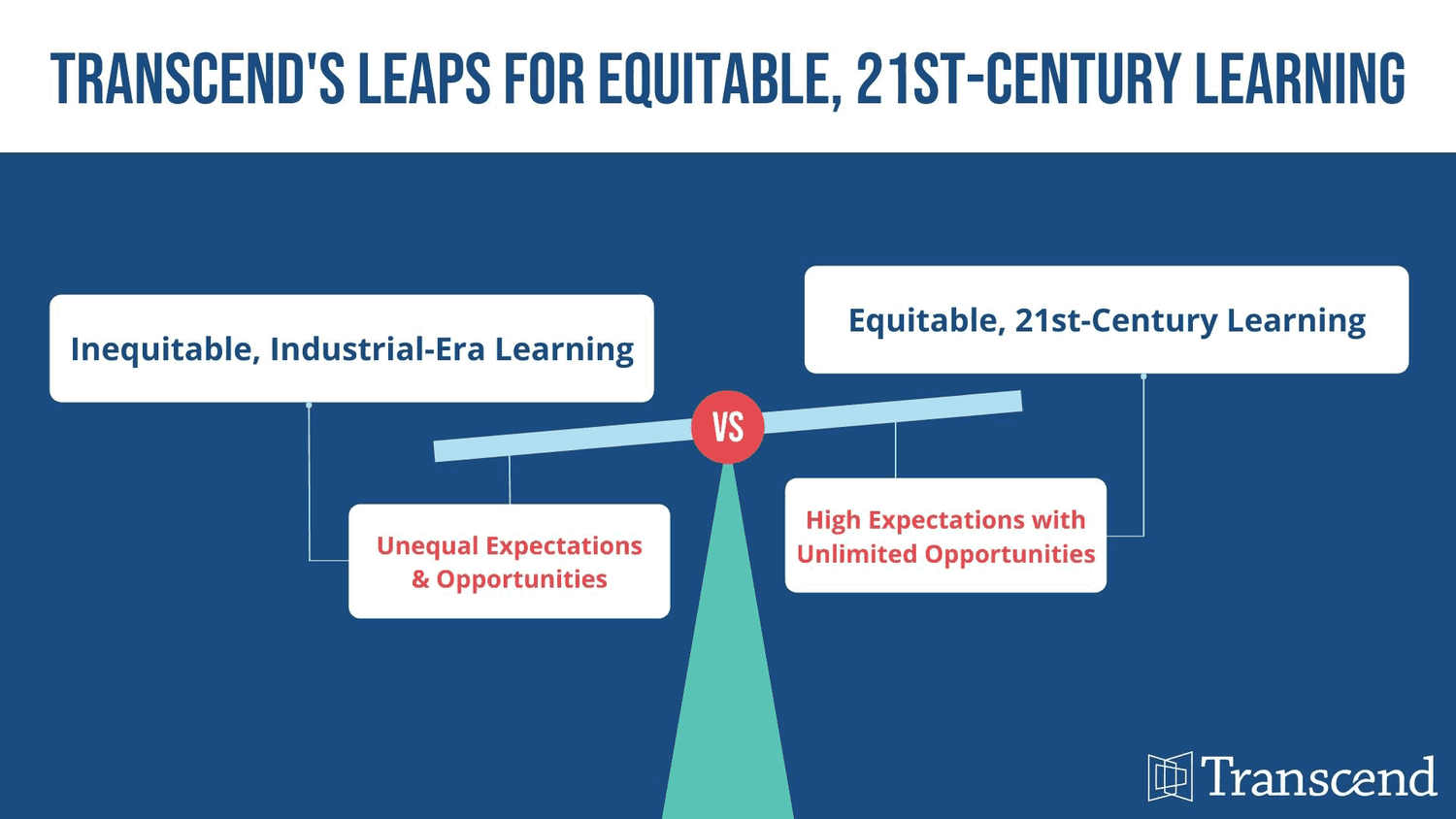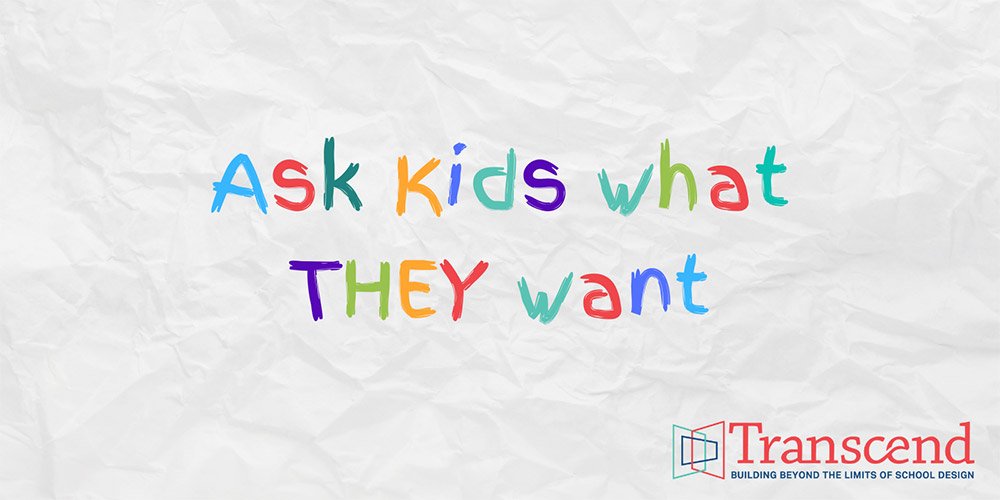Dallas Isd Team Engages in Conversations With Students and Teachers to Drive Redesign

Schools are navigating difficult circumstances as another school year during the pandemic comes to a close. These last few weeks of the academic year also offer an opportunity to reconnect with young people and center their voices in the discussion of how they experience school. Transcend launched the Conversations with Kids resources to support leaders in better understanding how their students are experiencing school.
Earlier this year, the Dallas ISD Leadership team used the Conversations with Kids guide to connect with young people and educators about their experiences in Dallas schools. According to Jesús Rodriguez, Ed.D, deputy chief academic officer for Dallas ISD, “When we learned about the Conversations with Kids toolkit, we thought it would be a great opportunity to hear from our students and our teachers here in Dallas ISD. We went through the toolkit and thought about which questions we want to ask students and teachers at this time.” Sixteen systems leaders volunteered to participate as interviewers and in total 35 students and 35 educators across campuses were interviewed.
OFTENTIMES, WE DESIGN FOR STUDENTS OR FOR TEACHERS, AND NOT WITH STUDENTS AND TEACHERS. WE WANTED TO INCLUDE THEIR PERSPECTIVES …WHAT’S WORKING WELL, AND WHAT ISN’T
Dr. Jesús Rodriguez, Deputy Chief Academic Officer, Dallas ISD
Dr. Rodriguez shares here an insight they learned about how it’s often extracurricular and non academic experiences that seem to be shaping what felt most meaningful to students about their day.
In addition, it was clear that the district’s longtime investment in social and emotional learning has had an impact on students’ wellbeing. “When we asked ‘When do you get to be yourself at school?’ students would go back to ‘during our social and emotional morning time.’ This was true for students, and true for teachers, and was something that we thought was a really high impact experience and we know that it’s paying off.”
Watch what Dr. Rodriguez has to say about this.
Dr. Rodriguez reflects, “There were so many similarities across the campuses, and across teachers and students.” The team uncovered key learnings around six main themes:
- Longtime investment in SEL is paying off. Students and teachers in many schools reported that they have a variety of opportunities to express themselves and foster relationships, yet there are inconsistencies across contexts.
- There are “crystal seeds” on the periphery of core academic instruction. Students and teachers reflected that while they had many meaningful experiences, the majority occur outside of the typical curriculum and instruction.
- The Opportunity Gap persists. Some kids have access to a myriad of rich learning opportunities like extracurricular activities, choice schools, or special programs; others rely on their placement schools to provide all opportunities.
- There are bright spots and room for growth in identity-affirming experiences. The Opportunity Gap yields differences in how affirmed kids feel; some report that they feel like themselves all day; others do not.
- What gets measured matters. Current accountability measures only consider the core academics, causing teachers to prioritize what is measured even though a deeper focus on SEL positively impacts core academics.
- Teacher perceptions do not always reflect learner realities. Teachers and students expressed don’t always agree on what the most meaningful learning experiences are.
Dr. Rodriguez shares, “Oftentimes, we design for students or for teachers, and not with students and teachers. We wanted to be counterculture in that regard, and design with them, and include their perspectives into this work. We wanted to hear from both students and teachers on what’s working well, and what isn’t.”
For Dr. Rodriguez, the opportunity to listen to school community members in order to reimagine learning is very personal, “I didn’t have a great school experience myself, particularly in high school,” he shares. “This is an opportunity for us to make these leaps into 21st century learning.”

Transcend’s Conversations with Kids resources are grounded in research on Leaps for Equitable 21st Century Learning, essential shifts in young people’s schooling experiences that unlock the infinite potential of every child.
School and system leaders, educators, and caregivers can use these in two simple ways:
1) Listen to young people.
- Visit here to download the conversation guide and talk with one student or a small group of students, OR
- Survey groups of students with an online tool and receive a confidential report with your results
2) Make meaning of what students share using a reflection guide. Consider if your school is moving forward toward more equitable and extraordinary experiences, or backwards to industrial-era learning

Transcend supports communities to create and spread extraordinary, equitable learning environments.

